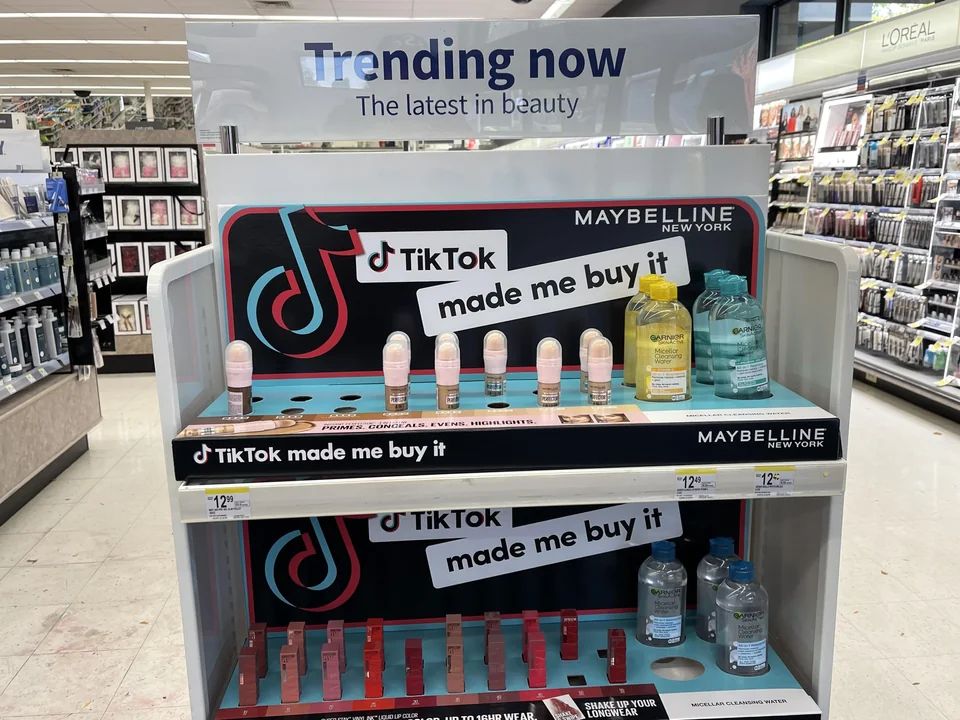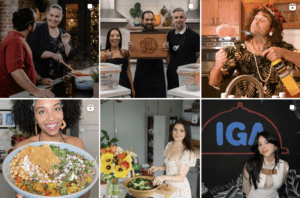It’s undeniable that TikTok has more than made its mark in the social media world. The app, which is known for its crazy dance trends and perfectly personalised ‘For You’ pages, has been downloaded over 3.5 billion times and has been the most downloaded app three years in a row now.
The app’s popularity, however, does not stop at singing and dancing. TikTok has proven to be an extremely influential and powerful app which leads to products – from mini uggs to Dior blush – completely selling out after trending on the platform, with the hashtag #tiktokmademebuyit being used over 39.3 billion times. Now, users are turning to TikTok to find top beauty products, the best spots for dinner or even reviews of the latest skincare – rather than Google.

This recent shift has not gone unnoticed. Google’s Senior Vice President Prabhakar Raghavan highlighted how younger generations were using social media platforms as search engines, instead of Google, at Fortune’s Brainstorm Tech Conference in 2022. Raghavan also mentioned that according to internal research, approximately 40% of young people will use platforms like TikTok to search for lunch options, rather than Google.
It is important to note that TikTok is not the first social media platform to have been referred to as a search engine. YouTube has been increasingly used to search for products, tutorials and recommendations over the last decade. Furthermore, the same can be said for Amazon, as well as Instagram which has also provided users with the latest fashion and beauty trends.
It would appear, however, that TikTok’s short and snappy videos provide up-to-date and instant answers which is perfect for Gen Z’s decreasing attention span.
Moreover, TikTok users are given recommendations from their favourite content creators and can check the legitimacy of any recommendation with a quick scroll in the comments section. Even the creators themselves are talking about how they are ‘TikTok-ing’, not ‘google-ing’.
TikTok has acknowledged that users are beginning to use the platform as a search engine and have added in more features accordingly. When you start a search in the search bar for example, you will now see a list of other suggestions – just like on Google.
When you click on the search bar it also shows you some of your past searches, as well as a “You may like” list of searches.
Furthermore, there are also search suggestions in the comments section.
It would seem, therefore, that TikTok is becoming the go-to Gen Z search engine.
Jumping on the increased interest, TikTok have also recently released an advert showcasing the ‘search’ feature on the app, and the advert ends with the words “search it with TikTok”.
If TikTok is being used as a search engine, what does this mean for brands and content creators?
As users of TikTok are increasingly finding content through the search bar, brands and content creators need to ensure that their videos are at the top of the search results if they want to keep increasing their views and building their audiences.
But how do you do this?
This is where TikTok SEO comes in. Thankfully, this is not as complicated as it may sound. Let’s break it down.
SEO (Search Engine Optimisation) has traditionally been used in regards to increasing a website’s chance of being discoverable on search pages. When applied to TikTok, it means making your content more discoverable, and therefore more likely to get views and engagement.

How can you incorporate TikTok SEO into your marketing strategy?
Luckily, TikTok SEO is super easy to incorporate and one of the best ways is to use keywords.
Just use keywords? Almost.
The best place to start is to do some keyword research. This doesn’t mean hours of reading and note-taking, just a quick scroll on TikTok is all you need to do.
Search the product/topic/content your video is about. If your TikTok is about skincare, for example, search skincare in the search bar.
You will then have a list of related words which you can then use in your videos, like “skincare routine”, “products”, “aesthetic” or “must haves”. You can use these by saying them in the video, putting them in captions and hashtags, and including them in any on-screen text.
This should increase the likelihood of your video showing up in the search results.
Is TikTok really going to overtake Google as the number one search engine?
Whilst TikTok may be great for searching for the best rooftop bars in London, there are some things you just can’t TikTok.
The *very* important questions: what time does Starbucks open? Or where is the nearest Joe and the Juice? They may be more efficiently answered by a quick Google search. Furthermore, it seems like this shift in using social media as a search engine is more prominent amongst younger generations. 52.3% of all TikTok users, for example, are aged between 18 and 24. Furthermore, more than 75% of all users are aged between 16 and 34. Therefore, I don’t think Google will be disappearing any time soon.
The way that people, and particularly younger people, are searching and using social media however has shifted. Consumers are looking for instant and direct results from the creators they trust. Brands and creators would therefore benefit from incorporating TikTok SEO into their marketing strategies if they haven’t done so already.






